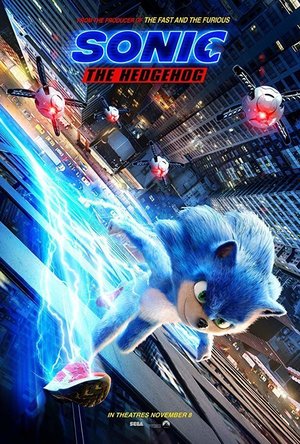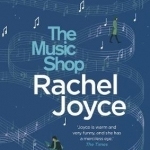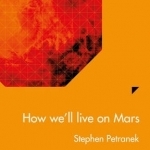
How We'll Live on Mars
Book
Part of the TED series: How We'll Live on Mars It sounds like science fiction, but award-winning...
Lessons is the story of Roland Baines’ life. His successes, loves, losses - all set against an historical background of the 20th and 21st centuries: World War 2, the Cuban Missile Crisis, Chernobyl and Covid 19 (and others besides, but there are too many to mention them all!).
I was completely engrossed, and it’s a book that you don’t want to race through. I love McEwans writing - so much is said in each sentence.
I’ll admit it now, a lot of what really kept my attention were the details about Germany: WW2 and it’s aftermath, Roland’s trips beyond the Berlin Wall and it’s fall.
The future is set for Alissa (Roland’s wife) when her English mother presents her with her journals, written when she travelled to Germany after the war. She had wanted to write articles about German Resistance during the war, and specifically the Scholls White Rose movement. These journals remained unpublished and unread 40 years later. And so when Alissa walks away from Roland and their baby to ensure her own dreams of literary success, it’s unsurprising even if it’ll ears callous.
The book is told from Roland’s point of view, first person, so we hear his inner voice throughout. What stood out most for me, was that his voice doesn’t change through the years. Yes, I know this is obvious - it’s the same book. What I mean is that what younger people often forget, is that the 72 year old man at the end of the book is the same as the 11 year old boy - just with 61 years experience. His experiences as an 11-14 year old with his piano teacher have a lasting and life-changing impact.
I loved this book and would highly recommend it. It’s a book to be savoured.
LeftSideCut (3776 KP) rated Sonic the Hedgehog (2020) in Movies
Feb 14, 2020
When Sonic accidentally creates a coast wide blackout, he finds himself the subject of a government manhunt, lead by the criminally insane Dr. Robotnik, and employs the help of Montana Sheriff Tom Wachowski, to help him escape Earth.
The film serves as an introduction to Sonic, shying away (although not completely) from the wider game universe, and concentrating on the titular character, and the human characters he meets along the way.
The relationship formed between Sonic and Tom (James Marsden) is sweet, and pretty convincing.
The dialogue between the two is full of quips and jokes, and honestly, a fair few of them don't land too well. Combine this with the odd fart joke, and I had to remind myself that this is a film aimed at kids (who were all laughing, so mission accomplished), and there's just enough funny to buy into their friendship. Thank goodness then for Jim Carrey. I have a deep rooted live for Jim Carrey, growing up with films such as Ace Ventura and The Mask, and it's absolutely joyous to see him having a blast playing Robotnik. He's genuinely menacing, and pretty damn funny throughout, perfect casting when it comes to capturing the not-to-serious attitude of the games.
The plot is ok, there's not a huge amount going on, and it seems fairly throw away, but the characters and visuals are enough to carry the film to a satisfying degree.
Sonic looks great, a far cry from what we saw in the original trailer, and the cartoony look of him, and Robitnik's machines work suprisingly well with the real world setting.
Sonic the Hedgehog is a genuinely good time, don't take it too seriously, and I'm sure you'll have a blast too. With the passable Rampage, and the great Detective Pikachu, could it be that Hollywood is slowly starting to crack video game movies?? Let's hope so!

EPIC Adventures - Kids Stories
Book and Education
App
What if we could inspire our children to find the EPIC in the everyday? Opening their eyes to...
Cynthia Armistead (17 KP) rated The Trade of Queens (The Merchant Princes, #6) in Books
Mar 1, 2018
Anyway, my one and only complaint about this book is that it's been too long since I read the other five, and that isn't Stross' fault. Or maybe it is, in a backwards sense, but only in that it takes longer for him to write than for me to read. If I'd stuck to my guns about not starting any series until it was finished, I'd be fine, but then I'd hardly have anything at all to read, would I? It's just that this particular series is full of intricate plotting and many characters, and I really could have used some sort of serious online reference for this world.
Some plot threads were tied up, and a few new ones were introduced. I'll could understand this book as a resting point for Stross, but not a stopping point! While most series would have lost my interest after six books, this one hasn't. He really is that good.
That said, some of the post-9/11 mania is a little dated, and it is good to be past that. I imagine he's glad to be done writing it, too. I wish our society were completely done with the erosion of civil rights caused by it, too.
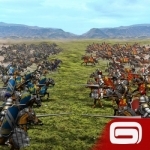
March of Empires
Games and Social Networking
App
Brace yourself for an age of massive medieval war, where you will march over your rivals’ burning...
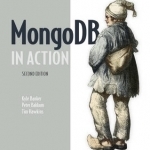
MongoDB in Action
Kyle Banker, Peter Bakkum and Tim Hawkins
Book
DESCRIPTION Application developers love MongoDB, a document-oriented NoSQL database, for its speed,...
Hazel (1853 KP) rated The Music Shop in Books
Aug 22, 2017
From the author of The Unlikely Pilgrimage of Harold Fry comes a unique and beautiful story about music and learning how to listen. The Music Shop by Rachel Joyce takes readers on a journey through the developing music world of the late 1980s when CDs are beginning to wipe out all other means of recording music – a complete disaster for someone like Frank, the owner of the music shop, who only sells vinyl.
The book begins in 1988 in a crumbling down street where shopkeepers are barely making enough money to survive. Frank’s shop is one of the few remaining and, despite everything against him, is determined to keep going. Not only does he sell vinyl records, Frank has an empathetic gift allowing him to sense exactly what a customer needs to listen to, even though they may not realise it themselves. However, one day, Frank’s world is turned upside down by the arrival of a young German woman, Ilse Brauchmann, who faints on his doorstep.
Ilse intrigues all of the shopkeepers on Unity Street, particularly Frank’s teenaged assistant, Kit. Although Frank tries to deny it, Ilse also fascinates him to the point that he is rarely thinking of anything else. But what concerns him most is that he cannot pinpoint what piece of music she ought to listen to. When questioned, Ilse admits she knows nothing about music and begs Frank to give her lessons. These lessons have nothing to do with instruments – Frank is the least qualified to teach such a thing – but about how to listen to music. How to hear the pauses in classical pieces; understand the meaning behind Beethoven’s sonatas; feel the passion behind punk music; learn to love a number of composers for the things many people miss.
The longer Frank spends around Ilse, the more he begins to fall in love. However, love is something Frank denies himself ever since the death of his mother fifteen years previously. Written in italics are flashback chapters explaining how Frank’s love of music came about, his relationship with his mother, and how he ended up as a dead-end vinyl seller. Due to his fear of intimate relationships, Frank keeps pushing Ilse away until, one day, he realises how much he needs her. But, he may have left it too late.
The Music Shop is split into four sections, or sides (a reference to vinyl records). Side A introduces the characters and settings during a wintery January when Frank is beginning to struggle with the competition caused by the recently opened Woolworths on the nearby high street. Sides B and C focus on the development of Frank and Ilse’s friendship, the secrets they hide from each other and the foreboding sense of disaster hanging over the one-of-a-kind music shop.
As Frank begins to realise how much Ilse means to him, the sudden appearance of side D will break readers’ hearts. Whilst sides A, B and C take place in 1988, side D jumps forward 21 years to 2009. It appears Frank and Ilse never got the relationship they deserved. Two unhappy decades have been and gone, demolishing any resemblance of the way life used to be. However, because there is a side D, readers can only hope it will result in a happy ending.
The Music Shop is a love story between two quiet, modest characters whose past and present circumstances get in the way of a peaceful future. However, it is not only a piece of romantic fiction. Rachel Joyce writes a message in story format about second chances and being brave. Learning to listen does not only apply to music, it applies to hearing what other people are saying and what they are not; most importantly, the book urges people to listen to themselves.
The research undertaken for this novel is phenomenal. For starters, it is set almost thirty years ago when vinyl was only beginning to go out of fashion. The quality of music and the access people had to it was extremely different to the simplicity of today where it is possible to download everything at the press of a button. The breadth of music genre is as wide as possible. Every type of music is covered from Handel’s Messiah to Aretha Franklin and The Sex Pistols. To be able to discuss such a range without falling into stereotypes is a feat worthy of congratulating.
The Music Shop far surpasses anything Rachel Joyce has written so far. The story is fragile in a beautiful way, its delicacy causing the reader to treat it with care, rather than rush through it like some mundane piece of fiction. It will interest a whole host of readers: male and female, music lovers and those with a preference for silence. Whoever you are, be prepared to take something away from this distinctive, outstanding novel.
Hazel (1853 KP) rated The Music Shop in Books
Dec 7, 2018
From the author of <i>The Unlikely Pilgrimage of Harold Fry </i>comes a unique and beautiful story about music and learning how to listen. <i>The Music Shop</i> by Rachel Joyce takes readers on a journey through the developing music world of the late 1980s when CDs are beginning to wipe out all other means of recording music – a complete disaster for someone like Frank, the owner of the music shop, who only sells vinyl.
The book begins in 1988 in a crumbling down street where shopkeepers are barely making enough money to survive. Frank’s shop is one of the few remaining and, despite everything against him, is determined to keep going. Not only does he sell vinyl records, Frank has an empathetic gift allowing him to sense exactly what a customer needs to listen to, even though they may not realise it themselves. However, one day, Frank’s world is turned upside down by the arrival of a young German woman, Ilse Brauchmann, who faints on his doorstep.
Ilse intrigues all of the shopkeepers on Unity Street, particularly Frank’s teenaged assistant, Kit. Although Frank tries to deny it, Ilse also fascinates him to the point that he is rarely thinking of anything else. But what concerns him most is that he cannot pinpoint what piece of music she ought to listen to. When questioned, Ilse admits she knows nothing about music and begs Frank to give her lessons. These lessons have nothing to do with instruments – Frank is the least qualified to teach such a thing – but about how to listen to music. How to hear the pauses in classical pieces; understand the meaning behind Beethoven’s sonatas; feel the passion behind punk music; learn to love a number of composers for the things many people miss.
The longer Frank spends around Ilse, the more he begins to fall in love. However, love is something Frank denies himself ever since the death of his mother fifteen years previously. Written in italics are flashback chapters explaining how Frank’s love of music came about, his relationship with his mother, and how he ended up as a dead-end vinyl seller. Due to his fear of intimate relationships, Frank keeps pushing Ilse away until, one day, he realises how much he needs her. But, he may have left it too late.
<i>The Music Shop</i> is split into four sections, or sides (a reference to vinyl records). Side A introduces the characters and settings during a wintery January when Frank is beginning to struggle with the competition caused by the recently opened Woolworths on the nearby high street. Sides B and C focus on the development of Frank and Ilse’s friendship, the secrets they hide from each other and the foreboding sense of disaster hanging over the one-of-a-kind music shop.
As Frank begins to realise how much Ilse means to him, the sudden appearance of side D will break readers’ hearts. Whilst sides A, B and C take place in 1988, side D jumps forward 21 years to 2009. It appears Frank and Ilse never got the relationship they deserved. Two unhappy decades have been and gone, demolishing any resemblance of the way life used to be. However, because there is a side D, readers can only hope it will result in a happy ending.
<i>The Music Shop</i> is a love story between two quiet, modest characters whose past and present circumstances get in the way of a peaceful future. However, it is not only a piece of romantic fiction. Rachel Joyce writes a message in story format about second chances and being brave. Learning to listen does not only apply to music, it applies to hearing what other people are saying and what they are not; most importantly, the book urges people to listen to themselves.
The research undertaken for this novel is phenomenal. For starters, it is set almost thirty years ago when vinyl was only beginning to go out of fashion. The quality of music and the access people had to it was extremely different to the simplicity of today where it is possible to download everything at the press of a button. The breadth of music genre is as wide as possible. Every type of music is covered from Handel’s <i>Messiah</i> to Aretha Franklin and The Sex Pistols. To be able to discuss such a range without falling into stereotypes is a feat worthy of congratulating.
<i>The Music Shop</i> far surpasses anything Rachel Joyce has written so far. The story is fragile in a beautiful way, its delicacy causing the reader to treat it with care, rather than rush through it like some mundane piece of fiction. It will interest a whole host of readers: male and female, music lovers and those with a preference for silence. Whoever you are, be prepared to take something away from this distinctive, outstanding novel.
Heather Cranmer (2721 KP) rated Breaking Glass in Books
Jun 7, 2018
If you've been following my blog/reviews, you will know that I love anything to do with beyond the grave! Ghosts are a sure fire way to make me pick up a book and read it instantly! Luckily, this book was a really interesting read and helped me keep my faith in those type of books.
The title is definitely an interesting one. It made me thing of a type of mystery book, which this is somewhat. Also, after reading the blurb, I thought maybe this would be about the main character having a break down.
I'm on the fence about the cover. On the one hand, I love the different images on the cover. They give me a sort of creepy feel. On the other hand, I wish the cover would've been an image from the book or gave us more insight to the book.
I love how the author draws you into Jeremy's world quite easily. I felt as if everything that was happening to Jeremy was happening to me. I could visualize the world quite easily. The only thing that kind of made me have a "hmm" moment was when The Book of the Dead disappears from Jeremy's room, but it just kind of turns up again in another chapter without any explanation. That's a totally minor thing, and all the other loose ends of the story are all tied up by the ending. The world building is just amazing!
Before I picked up this book, I felt as if it would start out slow at first and then pick up speed. How wrong I was! From the very first sentence, the pacing is spot on. Not once did I become bored with this book. I couldn't wait to find out what was going to happen next. I was hanging on every word, even at the ending! (And don't worry, there isn't any sort of cliff hanger ending. I just didn't want it to end).
I very much enjoyed the plot. I felt this was more of a whodunnit type plot. Jeremy is convinced someone murdered Susannah, so he's trying to solve the mystery as soon as possible all while feeling like he is being haunted by Susannah's ghost. There is some romantic elements, but it's not the main focus. Oh, and I loved the twists involving Susannah! There's even one about Ryan that I figured out with all the context clues before his secret was revealed.
The characters were written superbly! Jeremy Glass feels like an average angry teenager. Now when I say angry, I don't mean angsty or emo or immature. He's been through a lot including watching his mother die and dealing with his injury. Now he's convinced his best friend is missing. Jeremy's got a lot on his plate, and if I were him, I'd be angry too. I loved his sarcasm and wit even if it was to mask how he was feeling most of the time. We don't really get to see much of Susannah's character except when Jeremy believes he is seeing her ghost and what he finds out about her personality. The girl obviously had problems, but for a character whose presence is more ethereal, the author does a fantastic job of making her come alive (no pun intended). I would've loved to know more about Marisa especially her back story such as where she came from and why she moved to the United States. The book says she's an immigrant, but I would've just liked to know a bit more. I liked the character of Ryan. At first, I thought he was a bit of an idiot and really selfish, but as the story progresses, I came to see that Ryan had his reasons for acting the way he did. I really enjoyed Trudy's back story!
There is a lot of swearing in this book, but I don't believe it's over the top. Teenagers swear, and it's a part of life. The swearing in this book makes it more believable. I understand why a lot of young adult writers don't include swearing, but for this book, the swearing worked. Overall, the dialogue is easy to understand and very believable. There were some times where I felt that Jeremy was older then 17, but after all that he'd been through, I figured it was down to all he'd been through.
Overall, Breaking Glass is one of the most intriguing books that I've read. It's one of those books that makes you ponder whether or not the main character is going crazy or is he actually experiencing everything around him.
I'd recommend this book to those aged 16+ (due to language and themes) who like trying to solve mysteries and are looking for a book to wake up their brain.
I'd give Breaking Glass by Lisa Amowitz a 4.75 out of 5.

